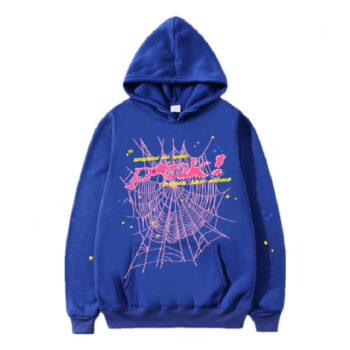
In the ever-evolving landscape of the fashion industry, one term has gained significant traction in recent years: Visit superhoodieofficial.com sustainability. Ethical considerations in sustainable fashion are no longer just buzzwords; they have become the cornerstone of a paradigm shift within the industry. This article delves deep into the ethical aspects of sustainable fashion, highlighting its importance, key principles, and the impact it has on both the environment and society.
Sustainable fashion is a holistic approach to clothing design, production, and consumption that prioritizes environmental and social responsibility. It goes beyond trendy designs and seasonal collections; instead, it focuses on creating a long-lasting positive impact on the planet and its inhabitants.
Sustainable fashion is built upon three essential pillars:
One of the primary ethical considerations in sustainable fashion is reducing the industry’s carbon footprint. Traditional fashion manufacturing processes are resource-intensive and heavily reliant on fossil fuels. Sustainable fashion brands prioritize renewable energy sources and implement eco-friendly practices to decrease greenhouse gas emissions.
Ethical fashion also emphasizes the use of sustainable materials such as organic cotton, hemp, and recycled fabrics. By choosing these materials over conventional ones, fashion brands contribute to the conservation of natural resources and reduce the environmental strain caused by textile production.
Unethical labor practices have plagued the fashion industry for years, with reports of low wages, long working hours, and unsafe conditions. Ethical considerations in sustainable fashion demand fair wages, safe workplaces, and respect for workers’ rights. Brands that adhere to these principles empower workers and promote social justice.
Sustainable fashion often involves collaboration with local communities, especially in sourcing materials. This approach not only supports local economies but also ensures the preservation of traditional craftsmanship and cultural heritage.
As consumers become more conscious of the ethical implications of their choices, ethical fashion brands gain prominence. This heightened awareness drives demand for sustainable products, prompting other fashion companies to rethink their practices and embrace ethical considerations.
Ethical fashion has sparked innovation in design and production processes. Brands are exploring alternative materials, waste reduction techniques, and innovative business models that prioritize sustainability. This creative shift is pushing the boundaries of fashion, proving that ethics and style can go hand in hand.
Individuals can play a crucial role in promoting ethical fashion by making mindful choices:
Fashion brands, retailers, and industry stakeholders can contribute by:
Ethical considerations in sustainable fashion are not merely a trend but a moral imperative. They encompass environmental responsibility, fair labor practices, and economic viability. By prioritizing sustainability, the fashion industry can mitigate its negative impact on the planet and society, creating a future where fashion is both stylish and ethical.